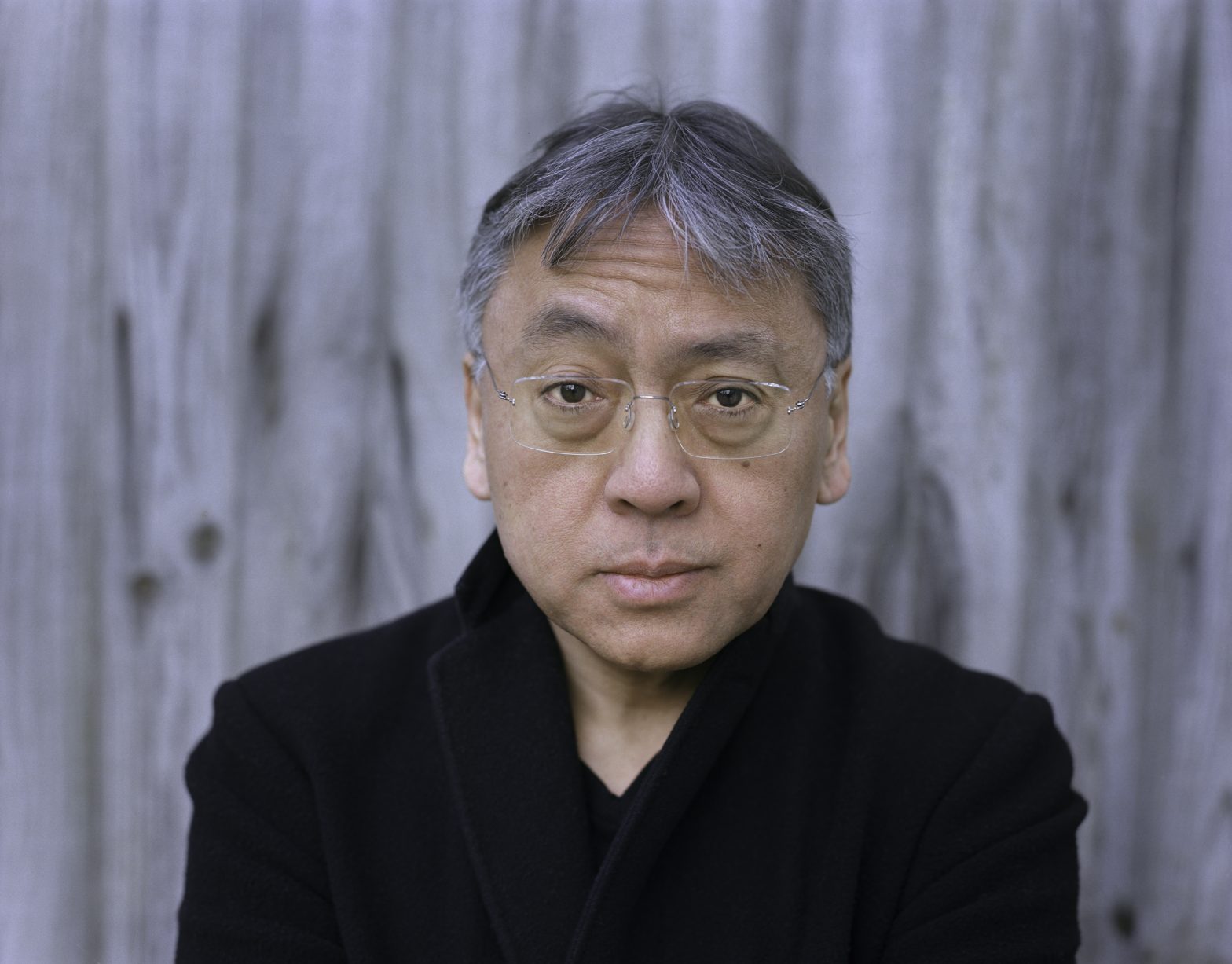I caught up with Kazuo Ishiguro in 1995. Six years earlier The Remains of the Day had won the Booker prize and it was two years since Merchant Ivory’s adaptation had hit the big screen. He had just published his fourth book, The Unconsoled – a book which could never live up to the literary world’s expectations. The question was, did we really want to understand?
] Book Talk [ Rewind ]
Kazuo Ishiguro [
People find it difficult to understand how such a cutting account of 1920s England as The Remains of the Day could have been written by a child of Nagasaki. The butler, Mr Stevens, seems so quintessentially English. As an immigrant whose family moved to the UK while he was still five, Kazuo Ishiguro sees nothing surprising in it.
‘The butler stereotype is recognised throughout the world…most of us are butlers. We do our little jobs to the best of our ability. We take some sense of meaning from that.’
In The Remains of the Day Stevens is quizzed on world events by house guests at a dinner. He consistently replies, ‘I’m very sorry, sir, but I am unable to be of assistance on this matter.’
Ishiguro sees worrying echoes of this Ostrich-like passivity in the current day.
‘We are all in some sense political and moral butlers. The world now seems to be a very complicated place…there is an overriding temptation to say, ‘Let’s leave it to the experts’. Most of the time our lives are just too busy… we can’t fulfil our democratic duties. What concerns me is what’s going on inside the heads of the experts. Because I think they’re just too busy!’
A child of Nagasaki
‘Public face’ versus ‘private responsibility’ is at the core of Ishiguro’s work and he draws parallels between the English and Japanese ‘cold, restrained’ stereotypes. Born just nine years after the atomic bomb dropped on his hometown, these parallels fascinate him.
He puts his own repeated use of the (apparently) detached narrative viewpoint down to the fact that when his parents first came to Britian, they thought their stay would be for a matter of months rather than years and ‘there was no need to immerse yourself in English culture.’
One legacy of this is his bemusement at the British obsession with puns (what he calls ‘linguistic coincidences’).
‘It’s like falling about laughing when you see two cars of the same make in the street.’
I’m not very good at English
Married to a Glaswegian, Ishiguro says his own time is now taken up ‘writing these books and going shopping and taking my little girl out.’ He – like his butler, Mr Stevens – is a meticulous planner (The Remains of the Day took two years to plan, and just one to write). Ishiguro sees himself as a theme-based writer (‘For my first three books I was writing the same book’) and dismisses his first, A Pale View of Hills, as merely ‘experimenting with technique’.
Although a Booker Prize winner who straddles two cultures, Ishiguro claims to be linguistically inaccurate in both.
‘I’m not very good at English. I was brought up in a Japanese household. My command of English isn’t 100% and as far as Japanese is concerned, linguistically, I stopped when I was five. I can communicate, but I do it in all the wrong forms. My command of Japanese, is even worse than my command of English.’
The unfilmable book
After writing his first novel he worked on several different screenplays for Channel 4 and that experience left him thinking that The Remains of the Day would be ‘an unfilmable book’.
Like most writers whose work has appeared on the big screen, he is ambivalent towards the end result. ‘When I saw ‘rushes’ I had totally irrational fears about doors being in the wrong place.’
For him, the Merchant Ivory version of his story as just that, a separate work of art. ‘A novel should not be something that can be replicated in front of a TV set…The novelist part of me feels slightly bruised.’
The nightmarish world of his latest work, The Unconsoled, in its Kafkaesque layered complexity is even less filmable and reveals his belief in ‘explosive convergences’ as his musician-narrator keeps bumping into different versions of himself.
The Unconsoled
Ishiguro blames the non-conventionality of the book for its poor reviews. ‘There is no tradition of this. Therefore, the reader finds it difficult to pick up.’ In the book Ishiguro presents us with a post-modern metaphor. ‘It is about loss of control: a man without a schedule pretends that he has one and forgets he’s pretending.’
Ordinary well-meaning people
Meeting Ishiguro on a promotional tour, chaperoned by a publicist and surrounded by eager readers the metaphor seemed particularly appropriate.
In his worlds, inhabited by ‘ordinary well-meaning people who wanted to excel but at the end of their lives wasted their lives’, Ishiguro’s books hold up a mirror to us all and ask us to be honest about what we see.
This piece is merely a snapshot, frozen in time. An earlier version was published in the newsletter of the IATEFL Literature & Cultural Studies SIG. In the intervening three decades Sir Kazuo Ishiguro has written several extraordinary books and deservedly been recognised as a Nobel Laureate. My thanks to Faber & Faber for supplying the author’s headshot.
